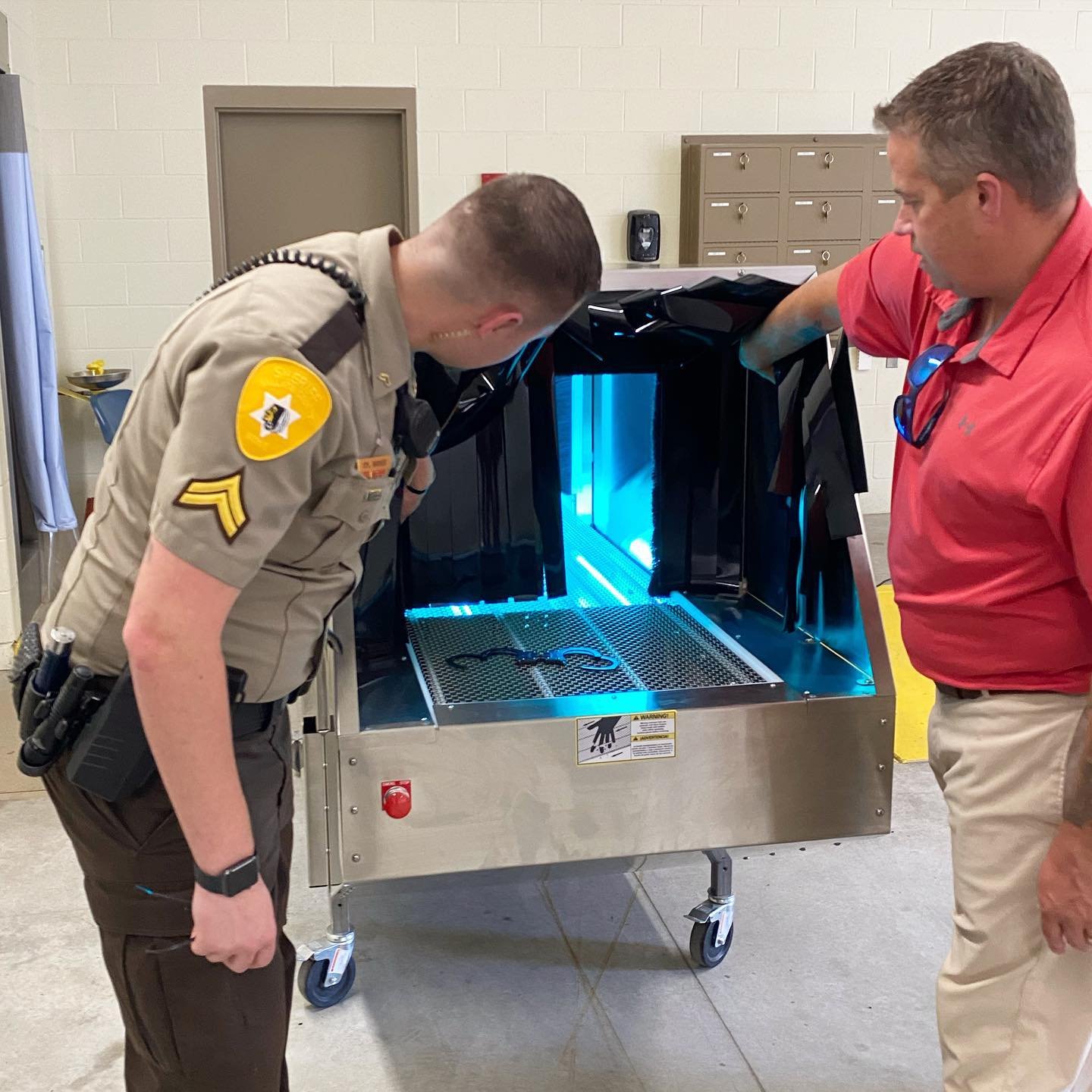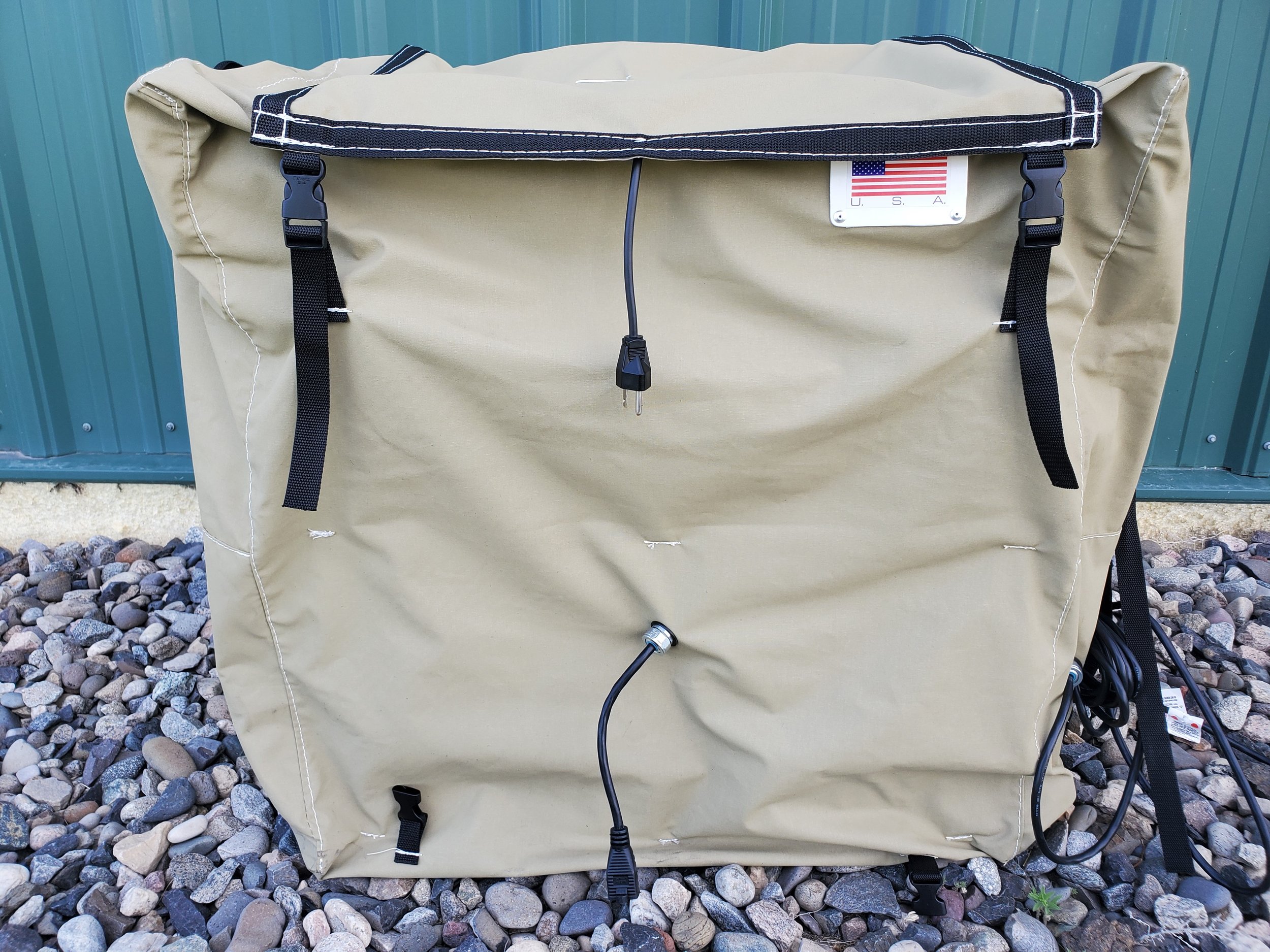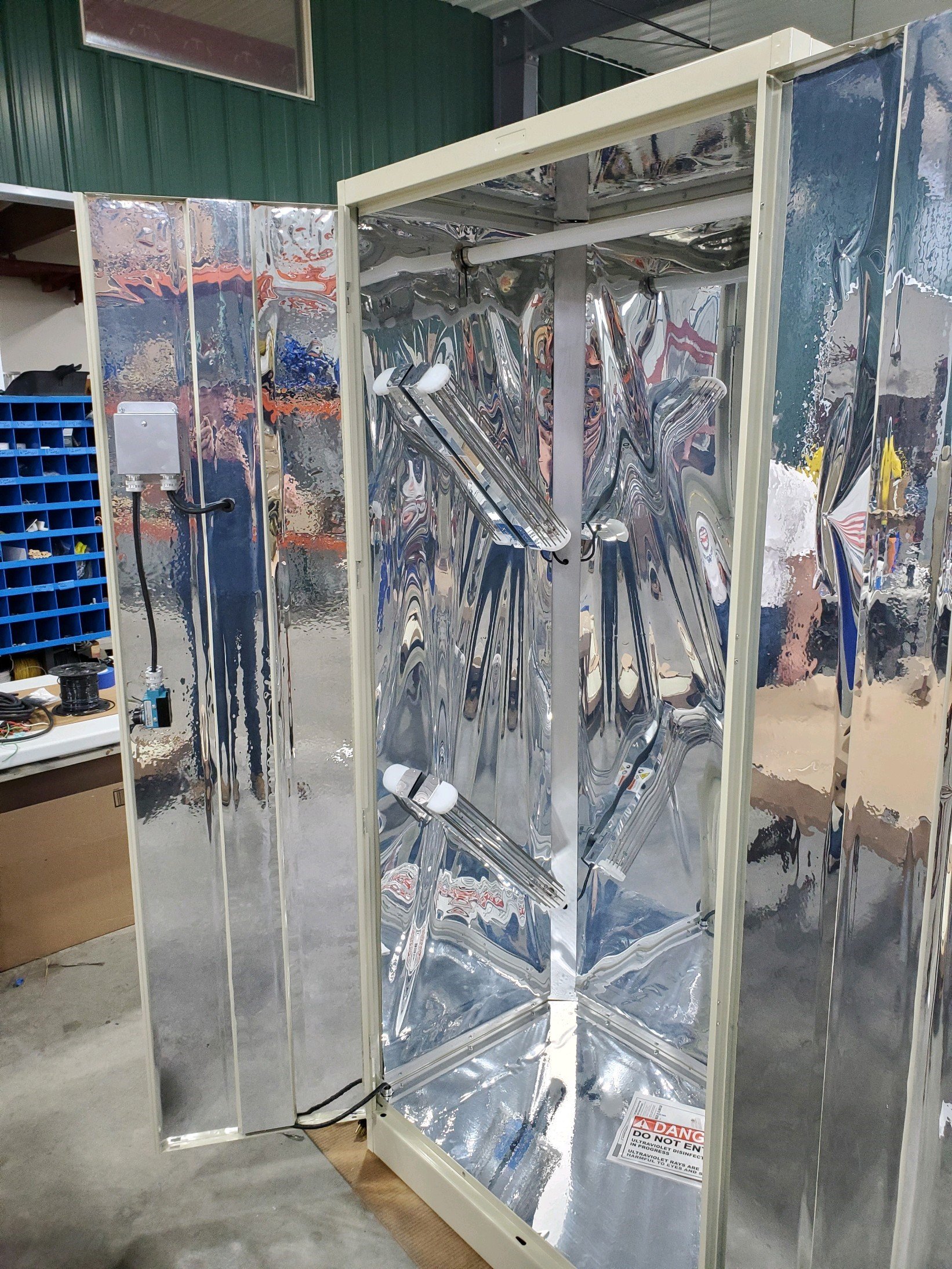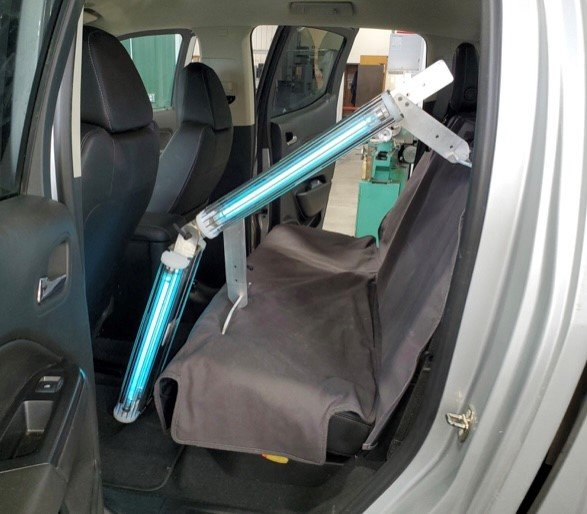Montana Startups to Watch 2022
By Courtney Brockman and Christina Henderson
Graphic by Jacob Treece
March 10, 2022
Since 2017, the Montana High Tech Business Alliance has published five years of annual Montana Tech Companies to Watch lists covering 100 businesses. While interviewing the six Montana Startups to Watch for our 6th installment in 2022, we were reminded why this series has been our highest-traffic content year after year. The annual list recognizes early stage high-tech and manufacturing companies with high potential to grow, create jobs in Montana, and impact the state’s economy. Montana startups are tackling some of the most pressing challenges of our time:
reducing greenhouse gases
building affordable housing
expanding access to mental healthcare
testing cannabis impairment
killing infectious diseases, and
helping small businesses leverage technology.
As the adoption of remote and distributed work has accelerated, geographic diversity has increased. The 2022 Montana Startups to Watch are based in Billings, Bozeman, Butte, Kalispell, and Missoula and many have ties to multiple cities.
Montana-based resources have been central to the companies’ success – from technological expertise at Montana State University and the University of Montana, to the local talent pool, to capital raised from Montana investors. Since the publication of our 2017 research study “A New Frontier: Entrepreneurship Ecosystems in Bozeman and Missoula, Montana,” the natural advantages of launching a company in Montana have only gotten stronger.
Special thanks to our talented marketing intern, Jacob Treece, for designing the Glacier and Yellowstone-themed graphics. (Keep an eye out for our Montana High-growth Companies to Watch 2022 list coming soon.) It’s always breathtaking to watch the sun rise over Montana’s incredible landscapes. And it’s always inspiring to hear the stories of Montana’s most innovative startups.
2022 Montana Startups to Watch in alphabetical order:
BioSqueeze, Butte - Seal greenhouse gas leaks from oil and gas wells through natural biomineralization.
Endpoint Utility Corp, Kalispell - Provide 24/7 on-demand technical support for small to mid-sized businesses.
Foothold, Bozeman and Butte - Build sustainable and affordable prefabricated housing.
Frontier Psychiatry, Billings - Make psychiatric care accessible to rural areas through telehealth.
Gaize, Missoula - Build a real-time impairment testing and evidence capture device for cannabis.
Kart Kleen, Missoula - Manufacture portable units that use UV light to decontaminate equipment for first responders.
-
To form the list, the Montana High Tech Business Alliance solicited nominations from partners including Two Bear Capital, Next Frontier Capital, Frontier Angels/Early Stage Montana, Goodworks Ventures, the Blackstone LaunchPads at Montana State University (MSU) and the University of Montana (UM), and the Montana Manufacturing Extension Center.
The six finalists were selected based on the following criteria:
* Steep revenue growth and/or are working in a high-growth sector
* Poised to launch high-potential products or services
* Own or are developing valuable intellectual property
* On track to land major clients or enter new markets
* Plan to expand operations or add a significant number of jobs in the next year
* Have management teams led by experienced entrepreneurs or top experts in their fields
Why We’re Watching Them: One third of global methane emissions each year come from leaking oil and gas wells (29 million worldwide). The problem has become so extensive that the U.S. federal infrastructure plan has earmarked $4.7 billion to seal methane leaks in wells across the country.
Butte startup BioSqueeze Inc. uses a fluid-based biotechnology to seal tiny cracks in oil and gas wells, creating a barrier that permanently sequesters greenhouse gases deep underground. Biomineralization solves an environmental, social, and governance (ESG) challenge pervasive in the industry, creating a cost-effective solution to reduce fugitive emissions.
BioSqueeze Inc. posted just under $1.7 million in revenue in 2021 and has already sealed more than 40 wells in six states for some of the largest oil companies in the world.
The company’s proprietary technology was developed in partnership with the Center for Biofilm Engineering at Montana State University (MSU). Over a 10-year period, approximately $8 million in Department of Energy funding supported the research at MSU and work of BioSqueeze Inc. co-founders Randy Hiebert, Robert Hyatt, and Jay McCloskey to apply biomineralization to carbon sequestration in the oil and gas industry.
-
BioSqueeze Inc. harnesses the natural process of biomineralization, using living organisms to create new minerals. Common naturally occurring soil bacteria are fed nutrients to form crystalline calcium carbonate (similar to limestone) that creates a permanent, gas tight barrier to prevent gases from escaping. BioSqueeze®’s environmentally friendly biomineralizing solutions have an extremely low viscosity (similar to water), allowing them to be injected hundreds of feet into miniscule cracks that no other technology can penetrate. BioSqueeze® has proven to seal fractures as small as 2 microns (a human hair is 50 microns) wide, ensuring all potential leakage pathways are effectively closed. Cement, the most common material used to seal wells, is more than 150 times as thick.
BioSqueeze Inc. holds two patents jointly with MSU and licenses the technology in partnership with MSU’s Tech Transfer Office.
In September, Mark Ranalli, the former Dean of the Jake Jabs College of Business at MSU raised $4m from Montana-based investors Next Frontier Capital and Frontier Angels and assumed the role of President and CEO.
The company has partnered with oil and gas operators in the Appalachian, Denver-Julesburg, Powder River, and Permian Basins in the U.S. to reduce the environmental impact of energy production with a more effective and affordable solution than any alternative.
“Methane leaks from wells have given the Oil and Gas industry a bad reputation for many years. With our technology, we can very effectively address this environmental challenge.” CEO & President Mark Ranalli said.
Since September, the company has grown from 3 employees to 16 employees and plans to reach 30 employees by the end of 2022. The startup has hired MSU and Montana Tech graduates for marketing, mechanical engineering, electrical engineering, operations, and microbiology roles. They have also partnered with Montana based companies for their accounting, IT, fabrication, and graphic design needs. The company intends to open a second office in Bozeman soon.
“This is a great Montana story,” Ranalli said. “And we’re trying to keep it that way.”
Location: Whitefish
What They Do: Provide 24/7 on-demand technical support for small to mid-sized businesses.
Why We’re Watching Them: One of the biggest struggles small and mid-sized businesses face is whom to call when technical issues arise. Until now, there has been no affordable answers to this problem for businesses of this size. Endpoint Utility Corp is poised for rocket growth, bringing with it many quality jobs to the Flathead Valley.
Endpoint Utility is expanding as an IT services leader for growing businesses with its cloud computing solutions, as well as a pipeline to tech jobs for locals in Northwestern Montana. The company has scaled end-user computing architecture for small and mid-sized businesses, providing the software support necessary for these businesses to save time and resources.
CEO David Mayer and co-founders Nick and Neil Photikarm and Evan Tomlin came up with the idea for Endpoint around a virtual fireside chat in 2020. With decades of experience in end-user computing technologies, IT operations and sourcing IT leadership for both large companies and small companies, they officially launched the company in April 2021.
Endpoint has acquired several customers through direct and third-party marketing. They will launch nationwide with a focus on Northern Virginia and Chicago, areas where the company’s technical leaders are based. Mayer send Endpoint will focus primarily on demand generation efforts this year, and sales and hiring.
-
Endpoint currently has seven employees and will continue to add more as customers come on board. The company anticipates hiring 12 to 20 employees in 2022 in sales and tech support.
Most new hires are Computer User Support Specialists who provide technical help to non-IT computer users. These roles are a great entry point into the tech industry open to workers with a high school diploma. According to the U.S. Dept. of Labor’s O*NET database, entry-level Computer User Support Specialists earn a median wage between $30k and $50k per year in Montana.
Mayer said that Endpoint aims to hire local talent, and he is working with Flathead Valley Community College and REACH Higher Montana, to help grow and train employees through apprenticeships and curriculum.
“Starting jobs in the technology industry, those are jobs that don't require an advanced degree, they don't require a significant amount of experience, they just require a hard worker who's willing to learn and is a nice person,” Mayer said. “So those are things we can embed in curriculum, that will kind of pre-train some of the folks we can bring on board, complete the journey for them and get them into a job.”
Typically, Mayer said employees stay in their entry-level position for a few years and then progress to another company or sometimes rise up within the current organization, creating a flow of tech jobs in the local economy. Within IT Services, workers can move up the career ladder into management or other in-demand occupations like Web Development or Network Systems Administration.
“We think there's an opportunity for us to help grow [the Montana economy] from the bottom so people don't have to leave, go get a degree somewhere else, get experience in some other state and then come back,” Mayer said.
Image: Foothold prefabricated home installed on location. Courtesy Foothold.
Why We’re Watching Them: A severe shortage of affordable housing has become a central issue for Montana.
Foothold CEO Hannah Van Wetter, an experienced project manager in construction, and co-founder Sam Atkins, whose background is in business management, said that as the pandemic started in early 2020, they started thinking of possible solutions for the housing crisis in their hometown of Bozeman and beyond.
Bozeman is the epicenter of Montana’s booming tech sector. According to Van Wetter, for every tech job created, there are seven service jobs created. But service employees lack access to affordable housing. A 2020 needs assessment showed a need for 6,000 housing units in Bozeman over five years, but fewer than 900 were added in 2020. The median home price in Bozeman climbed to around $700,000.
“People who are in our generation, people who are in our community just are getting left behind by the housing market,” Atkins said. “Nurses, school teachers, firefighters, the person pouring your coffee, the person changing the oil in your car - it kind of doesn't matter all across the board. Wages are growing at a fairly modest 2-3% per year, while housing prices are double digits.”
Van Wetter and Atkins’ solution was to create high-quality, sustainable and affordable housing units through Foothold.
-
Foothold uses prefabrication - building a house in a location different from where it will be placed - to create smaller houses in less time and at a lower cost. Van Wetter and Atkins see prefabricated homes as an underused option to fill the affordable housing gap for communities of all sizes.
“Where this really makes sense is in markets where labor is in short supply, and where demand is high,” Atkins said. “We see that in Bozeman, and Missoula and Kalispell, these high-growth centers around Montana, and we also see it in all the tiny towns in between Deer Lodge and Twin Bridges, and Augusta. It's really expensive to build. And so what's getting built is fairly large, and then the final product is out of reach for the people who live there.”
Foothold currently offers two models of homes. The Alder is a 576 sq ft backyard accessory dwelling unit designed to increase neighborhood density with gentle infill. The Tamarack is a 1,000-sq-ft, 2-bed, 2-bath home designed for first time homeowners, young families, or an older couple looking to downsize.
In 2021, Foothold raised $750,000 in a pre-seed round in April, including $250,000 from friends and family and $500,000 in revenue-based financing. The founders hired the first 6 employees at their 9,000 square foot Butte factory in May and received a Big Sky Trust Fund job creation grant last September for 10 positions.
Foothold is a certified Benefit Corporation and won the top social venture prize in Montana State University's $50K Venture Competition in 2021.
So far, Foothold has sold 10 units and completed construction of their first home. Van Wetter and Atkins hope to expand capacity to manufacture 40 to 50 homes per year while aiming for modest growth.
“We create quality jobs, and we're creating quality housing,” Atkins said. “We're taking a deliberate, slower trajectory. We really believe that, in order to make a sustainable impact on the housing issue in Montana, that we want to be a sustainable business.”
Why We’re Watching Them: Montana consistently ranks in the top three states for suicide rates in the nation, with the highest rates occurring in rural areas. Frontier Psychiatry was founded in 2019 to address this challenge. Its goal is to make quality psychiatric care accessible to all Montanans by 2025.
“We need to make mental health care that it is actually accessible,” said Chief Technology Officer Dr. Reza Ghomi. “We want to be pretty clear about what access means. There’s so many people in Montana who don’t seek care because they don’t even think that it’s a possibility.”
Frontier Psychiatry began when Ghomi and co-founders Dr. Eric Arzubi and Dr. Bob Sise met at the University of Washington and started leveraging telehealth at Billings Clinic to staff psychiatry units around the state, beginning with Montana Mental Health Nursing Care Center.
Telepsychiatry is especially important to reach those who live in rural areas and often lack access to health car. In Montana, it is not uncommon for residents to drive several hours to their nearest clinic to receive care. Frontier Psychiatry eliminates that barrier by bringing quality mental health care directly to patients, wherever they are located.
-
Frontier Psychiatry also targets some of the hardest-to-reach patients by partnering with the Department of Corrections, emergency rooms and nursing homes around the state, in addition to supporting the work of other mental health care centers. Of the patients served, 70 to 80 percent are on Medicaid, and many are located in some of the most rural areas of Montana. The practice is also approved to see all veterans and staff VA locations.
Frontier Psychiatry has partnered with some of the largest health networks in the state for billing and credentialing and is working directly with ChARM, a robust electronic health records service, for IT infrastructure development. These partnerships will allow the practice to track vital metrics, such as the number of hospital beds available, the number of psychiatrists per population and hospital readmission rates. They plan to launch a slate of data visualization tools in the next year that will be available to healthcare providers throughout the state. These dashboards will help ensure patients receive the care they need quicker and more effectively.
“Patients are sitting for days in the emergency room, they're getting shipped eight hours here, eight hours there, it's costing tens of thousands of dollars,” Ghomi said. “It's a total mess. And these are things that can be fixed through this type of data sharing.
Ghomi says 2022 will be a year of explosive growth for Frontier Psychiatry. With nearly a dozen staff based out of Billings and 20 to 22 psych providers serving more than 2,000 patients monthly, Ghomi expects to hire 2 to 3 new team members a month and grow the number of patients served three to five times by the end of the year.
Frontier Psychiatry is working to build a web of services across the state. With expansion of emergency room coverage, development of Employee Assistance Programs and the launch of a network of crisis centers, its goal is to continue increasing accessibility to quality psychiatric care.
“We are a rural America solution,” Ghomi said. “But for the foreseeable future, we really want to get Montana right.”
Image: Gaize headset. Courtesy Gaize.
Location: Missoula
What They do: Build a real-time impairment testing and evidence capture device for cannabis.
Why We’re Watching Them: As cannabis has just become legalized in the state of Montana, questions arise as to how to measure when a driver is impaired by its main psychoactive compound, THC.
Ken Fichtler, who has launched multiple technology startups and worked as the director of The Montana Governor’s Office of Economic Development from 2017-2021, founded Gaize to enable police to test for active cannabis impairment on the road.
Cannabis impairment testing is a challenge. The amount of THC present in the body, is not correlated to the impairment experienced by the user. The drug, unlike alcohol, is metabolized in a non-linear process. THC rapidly spikes and falls to nearly undetectable levels within 20 minutes after being smoked, but the high lingers for over two hours. THC is also fat soluble, and in heavy users, can be detected in the body for over a month.
Instead of a breathalyzer, saliva, or blood test, Gaize tests impairment through monitoring involuntary, micro-movements of the eye, and pupil behavior, using machine learning. As with many other drugs, eye movements provide insight into whether someone who has ingested THC is actively impaired.
-
Through sensors and binocular cameras in a virtual reality headset, Gaize’s impairment testing device runs an automated test and generates video evidence. This process precisely quantifies how impaired a cannabis user is, and provides valuable evidence of impairment to law enforcement officers. The video, which is higher quality than a grainy body-cam or dash-cam video, can then be used in court. Gaize is aiming for significantly better than human level accuracy in detecting cannabis impairment.
“There are a handful of really important advantages to doing it this way,” Fichtler said. “One is that the tests are currently conducted by a human police officer that's relying on memorized testing procedures and their subjective interpretation of test results. They're conducting these tests in typically pretty adverse environments - side of the road, cars whizzing by, lights flashing. So, the VR headset provides a really ideal environment for us to conduct these tests and capture high quality data.”
This year, Gaize’s automated impairment testing product will be tested by law enforcement departments across the country.
Fichtler, who has been working with contractors in Billings and Bozeman, recently raised over $1.2 million in seed funding to finalize the product and hire key personnel. He also hopes Gaize’s tools can be used by commercial businesses to ensure that employees aren’t impaired on the job, especially as cannabis becomes a part of people’s lives.
“A lot of businesses are dropping urinalysis testing entirely in order to attract workforce, which is very difficult right now,” Fichtler said. “Employers seem to really want to respect their employees’ private time and allow them to use legal substances. Not doing that is tantamount to telling someone they can’t have a beer after work. Therefore, businesses are really interested in a tool that allows for proactive and on-site testing.”
Eventually, Fichtler hopes the equipment can use eye movements to track other impairing substances, including alcohol, opioids and stimulants.
“Gaize is the only product that has the potential to become a true impairment detection platform, regardless of the substance,” Fichtler said. “And so, I really believe that this is the future of drug testing.”
Images Left to Right: 1) Kart Kleen Entrance Unit delivered to Gallatin County Sheriff’s Office 2021. 2) Incident Bag. 3) Disinfection Locker. 4) Seat Decon Unit. Photos courtesy Kart Kleen.
Location: Missoula
What They Do: Manufacture portable decontamination equipment that uses UV light to kill more than 99.9 percent of bacteria and viruses on inanimate objects.
Why We’re Watching Them: For many years, Kart Kleen Founder and CEO Jason Gardiner was troubled by dirty shopping carts. In his work as insurance broker, Gardiner saw that unsanitary equipment could be a source of illness and a liability for businesses. He developed an idea for a system to sanitize shopping carts and pitched the concept to a major manufacturer about 10 years ago. The big company didn’t see a problem worth solving.
“They literally thought I was crazy,” Gardiner said.
Undeterred, in 2018, Gardiner decided to build the machine himself and recruited partners to help make his vision a reality. The first successful prototype, built in a garage, treated shopping carts with ultraviolet light. The Kart Kleen unit was just the beginning, as Gardiner had a vision to employ this type of technology for many different applications.
Gardiner recruited Bill Holben, a Professor of Microbial Ecology at the University of Montana with more than 30 years of experience, to test the system’s effectiveness. Holben found the first-generation unit killed 97 percent of protozoa, fungi, bacteria, and viruses and he was so impressed he joined Kart Kleen as their Chief Scientist.
With the onset of COVID-19 in 2020, the team used their technology to serve urgent needs like disinfecting personal protective equipment (PPE) for healthcare workers and emergency medical equipment for first responders.
-
Kart Kleen developed a portable unit that weighs just 20 pounds and can disinfect clothing and tools in 30 seconds without damaging the items. The collapsible bag is 5 times the needed strength to kill 99.9 percent of all microorganisms and eliminates odors, so equipment can be reused immediately. The technology kills coronaviruses as well as dangerous bacteria and viruses like MRSA, C. Diff, E. Coli, and Salmonella.
The Gallatin County and Yellowstone County Sheriff’s Offices piloted the system and are deploying more incident response bags in their facilities and police cruisers. Units are also being picked up by sheriff, police, and fire departments in Missoula, Butte, Helena, Kalispell, Boise, Coeur d'Alene, and gaining national attention.
Kart Kleen’s corporate headquarters are in Missoula and its disinfection bags, lockers, and seat units are manufactured in Belgrade, Mont. The team has grown to 14 employees, including Jason Gardiner’s son, Max, who serves as Executive Vice President. The CEO anticipates hiring 20 additional team members in 2022 for roles in manufacturing, sales, and office administration.
Kart Kleen has patents pending and is pursuing EPA approval to allow their technology to be used in hospitals. Kart Kleen is currently in the process of changing their name to Big Sky Decon, as they feel it reflects a better brand image of what they are doing now. The company is also developing new products and rebranding to reflect the broader application of its UV decontamination technology. Gardiner plans to expand manufacturing next year and is committed to doing so in Montana.
“I'm living my dream and helping people at the same time,” Gardiner said. “I feel very lucky to be a part of the Montana community.”
About the Publisher:
Launched in 2014, the Montana High Tech Business Alliance is a nonpartisan nonprofit association of more than 200 high-tech and manufacturing companies and affiliates creating high-paying jobs in Montana. For more information, visit MTHighTech.org or subscribe to our biweekly newsletter.
About the Authors:
Courtney Brockman is the Communications Director for the Montana High Tech Business Alliance. She graduated from the University of Montana in 2017 with a degree in journalism.
Christina Quick Henderson has served as Executive Director of the Montana High Tech Business Alliance since its launch in April 2014. She teaches in the University of Montana College of Business and writes for Montana Business Quarterly and other publications. Christina holds an English/Education degree from the University of Iowa and an MBA from the University of Montana.
About the Graphic Designer:
Jacob Treece is the former Digital Marketing and Jobs Board Coordinator for the Montana High Tech Business Alliance. Jake is currently a student at the University of Montana and Davidson Honors College studying International Business, Marketing, and Spanish.














